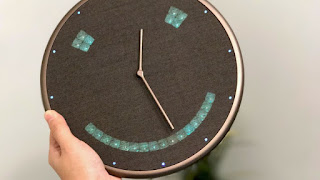This Simple New Tracking Method Can Find Your Luggage Even When The Airlines Can’t
If you’ve ever flown on an airplane you know the anxiety of waiting for your bags at the luggage carousel. It’s happened to all of us and if you’re the last one standing there while everyone else has retrieved their luggage and yours is still missing, you know how frustrating it can be.
Anyone who’s ever had their luggage “mishandled” or lost by an airline knows exactly what we’re talking about. Lost luggage is often met with little concern by airline employees that don’t do anything to make you feel comfortable that your luggage will ever be found. If it hasn’t happened yet, rest assured that it will.
But today there is an innovative & inexpensive technology that is changing the way we travel and keep our luggage safe. And it doesn’t require an expensive GPS tracking unit or monthly monitoring service to work.
Now, you can track your luggage without breaking the bank and it’s easier than you ever thought it could be!
As you know, most GPS tracking units are expensive and require a monthly subscription monitoring service to be effective. But why would you pay for a monthly monitoring service to track your luggage if you don’t travel every month?
Wouldn’t it be easier if you could attach something small to your luggage that always works, you only pay for once, it only needs a tiny battery to work and you could track it on your phone?
Now you can because technology is solving many of life’s most annoying problems: Like airlines losing your luggage after a long flight!
One company has created a tiny device with a free advanced tracking app that works with iPhones and Android phones and it could be exactly what you’re looking for.
What is it?
It’s called TrackR. It’s about the size of a quarter and it’s revolutionizing the way we keep track our important things.
How Does It Work?
Simple! You only need to install the tiny battery in the TrackR, download the free app on your iPhone or Android, link the device to the app and attach TrackR to whatever you want to keep tabs on. In less than 5 minutes you are ready to go!Once it’s all set up, you can attach it to your luggage when you travel, your keys, a wallet, your purse, your laptop or iPad and anything else you can think of.
The Possibilities Are Endless!
And yes, tracking your stuff really is that easy. There are no monthly subscriptions or annoying bills to pay.Traveling is already stressful enough – now you can let TrackR keep tabs on your valuable luggage while you relax on your flight.You can even slip the TrackR inside a pocket of your suitcase so nobody even knows it’s there. It’s discreet and still tracking!
You can also hide a TrackR in your car when you travel and navigate the confusing airport parking lot with ease!Airport parking lots can be very confusing and everybody has forgotten where they parked their car after a long trip. The last thing you want to do is look at a parking lot map to find your car.Now you can quickly find your car using TrackR and the free tracking app on your smartphone. All you need to do is open the app on your phone, and click on the 'lost item' icon.
Check out the video below if you want to see it in action:











